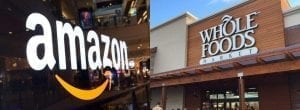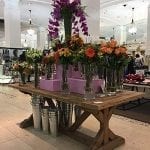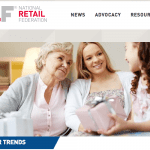 Amazon’s decision to purchase Whole Foods in a deal valued at $13.7 billion has the potential to “create a new ecosystem” of shopping, according to a business reporter who
Amazon’s decision to purchase Whole Foods in a deal valued at $13.7 billion has the potential to “create a new ecosystem” of shopping, according to a business reporter who
covers mergers and acquisitions for Reuters.
Lauren Hirsch was one of three experts who recently weighed in on the blockbuster deal on WBUR’s “On Point” radio show. The surprising news, which broke earlier this week, has experts rushing to predict what the deal, which includes Whole Foods’ 400 stores, could mean for consumers and retailers.
Hirsch’s take? This could be a pretty seismic shake-up.
“Amazon is very good at technology and data; they can change the price of an item online in a matter of seconds based on supply and demand,” she said. “You can now bring that technology to Whole Foods. You can price smarter, you can stock smarter. All of a sudden, Whole Foods becomes a much more formidable competitor.”
Hirsch also suggested that Amazon could be looking at those 400 stores as potential distribution points and investigating ways to better leverage its nascent drone delivery program — the company, she said, could also deliver some cost-savings to Whole Foods if it shared its automated workforce technology. (Whole Foods has denied plans to decrease its workforce or replace positions such as cashiers.)
There’s plenty of potential overlap with the floral industry in the deal. In 2015, Whole Foods tested delivery in 15 of its major markets, with prices starting at $25, plus $3.99 for delivery within two hours of ordering or $5.99 for one-hour delivery. The company promotes the sustainability and green-ties of its floral departments, which carry Veriflora-certified flowers, certified organic flowers and a “Whole Trade Guarantee,” a company-created certification. And, in recent years, Amazon also has experimented with opening physical stores.
Floral industry entrepreneur Brad Denham, who writes about growth strategies in Floral Management magazine, said there are some real takeaways for florists watching the news unfold — and some positive signs.
“It certainly shows that Amazon knows the value of having physical stores,” said Denham, who is the co-owner of Arizona Family Florist in Phoenix and has a background in the grocery industry. “I think it is validation that there will always be a need for some type of facility to provide inventory and logistics in the retail space. After all, Amazon has to store inventory and route deliveries from somewhere.”
As Denham points out, most grocers already sell fresh florals and some also deliver them.
“So, the impact of grocers on the floral industry has already been absorbed in many ways,” he said. “Unless Amazon/Whole Foods develops a specific industry focused effort, I can’t see how it would be much different.”
In Charleston, South Carolina, Society of American Florists Board Director Manny Gonzales, of Tiger Lily, said the news is worth watching. He noted that Whole Foods stores that he’s visited have strong floral departments, and the two companies combined will have competitive advantages by virtue of their size.
“Will they still sell flowers as a loss leader?” he wondered. “Will they have arrangements available on a website? Independent florists will need to step up their game.”
On a more big-picture level, Gonzales said he found it interesting that Whole Foods wasn’t “financially sound” and therefore open to the Amazon deal.
“For all their sales, raving fans and market dominance, they couldn’t hit their margins,” he noted, adding “that’s a good message” for all florists to consider.
Denham, too, noted that deal provided opportunities to reflect on local florists’ advantages.
“Florists sometimes forget that they have the ability to replicate the success of why customers shop Amazon in the first place: convenience online, price and logistics,” he said. ”I would suggest that within your delivery area, you have the ability to provide better logistics than even Amazon. We offer same-day delivery for orders placed by 3 pm. Amazon has very few markets and products that they can offer this level of service on.”
For his part, SAF CEO Peter Moran said the only thing that is certain is that the retail landscape is constantly evolving.
“The one constant is that Amazon has been a competitive disrupter to so many industries,” he said. “Now with the acquisition of Whole Foods, one would think flowers will become a greater offering in their mix.”
Skip Paal, AAF, of Rutland Beard Floral Group headquartered in the Baltimore area, agreed.
“I think this deal may have little tangible impact on most of the country’s florists, but changes are definitely coming, not so much due to this deal but to the evolution of the Amazon model overall,” said Paal, a member of SAF’s board of directors.
He said opportunities might present themselves to growers and suppliers in the industry.
“What intrigues me the most about the Amazon/Whole Foods deal is actually a strong positive for many of the nation’s flower growers,” he added. “Whole Foods really plays up the local and the ‘storyline’ behind many of its products. Flower offerings found in many of its stores are advertised with the farmer’s story, and that is what many of the store’s consumers are looking for. On the Amazon side, flower choices have traditionally been relatively limited with only a few vendors within the Amazon flower market. I think the opportunity might be close for many of the U.S. flower growers who currently sell to Whole Foods to be able to introduce their products into the Amazon supply chain.”
Look for more coverage of the deal in upcoming issues of Floral Management.
Want to be part of an ongoing conversation about new trends in retail—how they affect your business and why they matter? Want to learn from other florists and experts who spend their work life exploring these very topics? SAF Palm Beach 2017, the Society of American Florists’ annual convention, is coming up in September. It’s the industry’s premier gathering and the best possible place to network, learn and grow. This year, several sessions will focus specifically on the challenges posed by a dynamic retail landscape and rising customer expectations. Find out more and register today.



